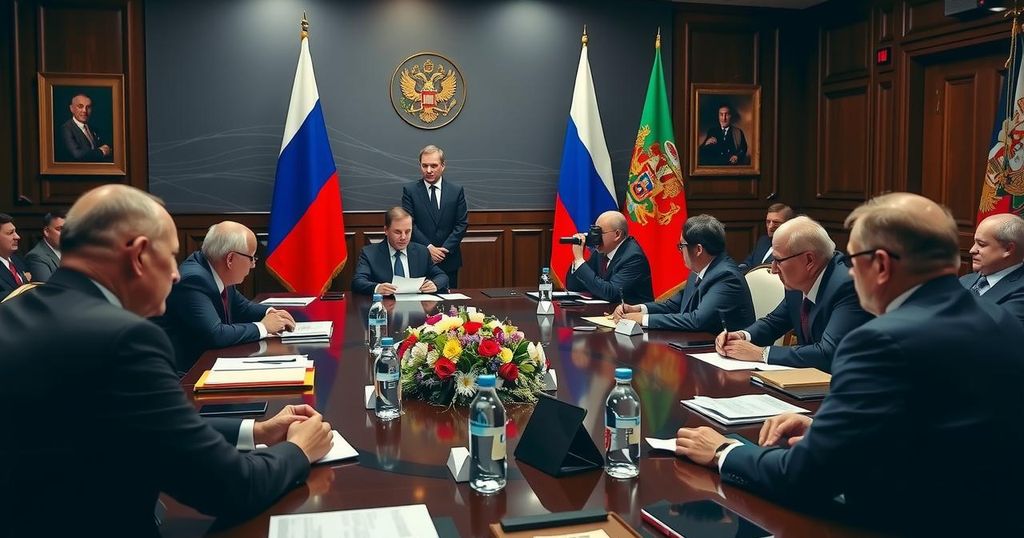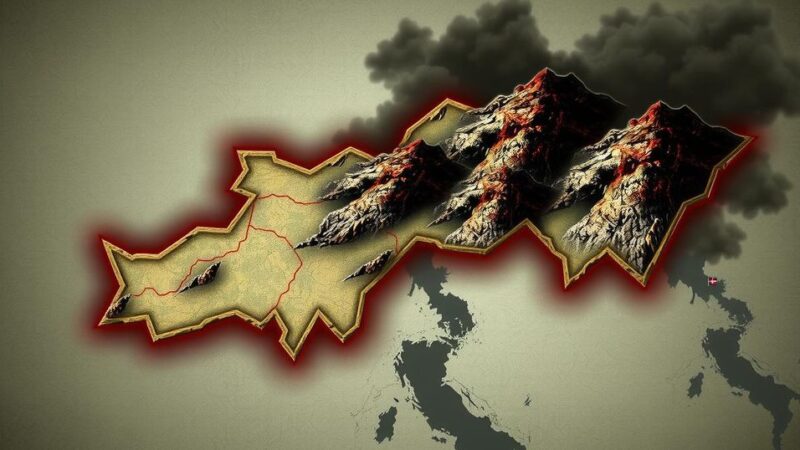President Vladimir Putin hosted the BRICS summit in Kazan, Russia, with leaders from various developing economies, including China and India. The event focused on expanding BRICS influence and addressing global issues such as the Ukraine conflict and financial cooperation. President Xi Jinping advocated for de-escalation in Ukraine, while Putin criticized Western sanctions. The summit showcased BRICS’s growing importance amid shifting global power dynamics.
President Vladimir Putin presided over a significant summit of the BRICS bloc of developing economies, hosted in Kazan, Russia, where leaders such as Chinese President Xi Jinping and Indian Prime Minister Narendra Modi convened. The summit, part of Russia’s ongoing strategy to elevate its influence on a global scale, sought to present BRICS as a formidable counterweight to the perceived dominance of Western nations. Notably, President Xi called for a de-escalation in the Ukraine conflict, advocating for a peaceful resolution while Putin criticized Western actions, labeling them as detrimental to global stability. The three-day event underscored discussions aimed at enhancing financial collaboration, expanding the BRICS bloc, and refining alternative payment systems to reduce dependence on Western financial networks. During the summit, discussions encompassed the deepening of financial cooperation within the BRICS group and potential mechanisms to mitigate the impacts of Western sanctions. The coalition, which has grown from its initial five members—Brazil, Russia, India, China, and South Africa—to include new nations like Iran, Egypt, and Ethiopia, continues to attract interest from numerous other countries. This expansion is seen as a strategic move to solidify the bloc’s global standing while countering the isolation of Russia amid its ongoing conflict with Ukraine. President Putin denounced the West’s use of sanctions and foreign influence, asserting that these actions foster conflicts rather than resolve them. He specifically mentioned the Ukraine situation, framing it as a threat to Russia’s national security. In contrast, President Xi emphasized the importance of the BRICS alliance in promoting international stability and security, also referencing collaborative peace initiatives regarding Ukraine. Furthermore, the inclusion of other international leaders, including United Nations Secretary-General Antonio Guterres, lent a broader context to the discussions, with Guterres emphasizing the urgent need for peace in several global hotspots, including Ukraine. The summit was subsequently touted by Russian media as a significant diplomatic success, illustrating the BRICS nations’ collective influence and their capacity to challenge Western hegemony. This perception is crucial as the BRICS nations represent a substantial portion of the world’s population, which they assert positions them as the ‘global majority’ opposed to Western norms and practices.
The BRICS bloc, comprising Brazil, Russia, India, China, and South Africa, was founded in 2009 with the ambition of fostering cooperation among emerging economies. Since its inception, the bloc has expanded its membership to reflect a broader coalition, now including countries like Iran, Egypt, and several others. The summit in Kazan illustrates Russia’s attempt to reaffirm its international standing while navigating the fallout from its actions in Ukraine and countering the West’s perceived dominance through unified economic and political strategies. The BRICS alliance aims to provide alternative global development narratives and frameworks, positioning itself as a voice for nations that feel marginalized by established Western-led orders.
The recent BRICS summit highlighted the bloc’s strategic role in countering Western influence and fostering global multipolarity. With leaders from multiple nations engaged in discussions about enhancing financial cooperation, managing regional conflicts, and promoting collective security, the event underscored a significant shift in international dynamics. The emphasis on unity and collaboration among BRICS members reflects their commitment to addressing common challenges while asserting their interests in the global arena.
Original Source: apnews.com






